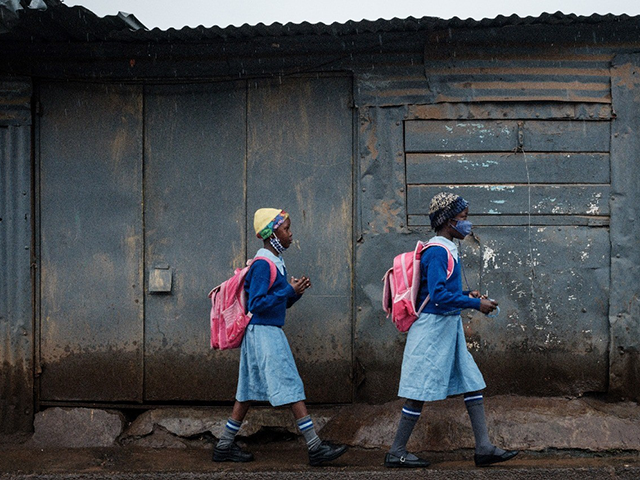The Conversation Africa on Wednesday reported on a disturbing trend in Kenya: a spike in the number of female genital mutilations (FGM) performed during the long winter holiday season, which this year runs from November to January.
FGM is a dangerous, unnecessary, and life-altering procedure that remains stubbornly persistent among some Muslim and African populations despite frequent condemnations from national governments and health officials, including the World Health Organization (W.H.O.).
W.H.O. advises that FGM has “no health benefits for girls and women,” but instead causes complications ranging from “severe bleeding and problems urinating” to difficulties with childbirth.
W.H.O. considers FGM a human rights violation and is especially concerned about the “medicalization” of the practice, meaning healthcare providers advocating or performing FGM instead of leaving it to traditional practitioners or black-market providers. The United Nations classified FGM as an act of violence against women in 1994.
Schools are closed for the long holidays in Kenya, which means girls are at increased risk of #FGM /C. Read more from @joachimosur @AmrefUniversity on how the community-led Alternative Rite of Passage model is working to reduce that risk for Maasai girlshttps://t.co/SKylQoepnN
— Amref Health Africa UK (@Amref_UK) December 21, 2022
FGM has nevertheless survived numerous crackdowns and is actually spreading as populations that practice it migrate to Europe and America. Women in FGM cultures are told their marriage prospects will be limited if they do not undergo the procedure, which can involve extensive and painful reshaping of their sex organs.
“The cut is practiced for various reasons. Some communities use it as a rite of passage. Some see it as a way of enhancing hygiene and aesthetics, sexual maturity, marriageability and social belonging,” The Conversation Africa explained.
Kenya officially prohibited FGM in 2011 and developed numerous initiatives to eliminate it. The ban was upheld by the Kenyan Supreme Court in 2021 against a petition that argued it was unconstitutional. The plaintiff who tried to get the ban struck down was a female doctor.
#Kenya's high court rejected "a petition seeking to legalize FGM on the grounds that the ban is unconstitutional and that adult women should be allowed to do what they want with their bodies."https://t.co/ZOtgiJ6Mjt pic.twitter.com/YYbI5fO0ia
— CIP Africa Program (@CIPolicyAfrica) March 21, 2021
Kenyan President Uhuru Kenyatta promised in 2019 to stamp out FGM by 2022, and yet Kenya is still plagued by waves of mutilations during the school holiday season.
According to studies cited by The Conversation Africa, two of the most effective steps taken against FGM were creating “alternative rites of passage” for girls and getting more girls into school. These measures reduced FGM prevalence by over 24 percent during the past decade, along with reversing the trends of increasing forced marriage and teen pregnancy, but a distressingly large number of Kenyan girls remain at risk.
A Pulitzer Center study in January 2021 found FGM made a comeback in Kenya during the coronavirus pandemic, in part because schools were shut down so more girls were subjected to the procedure.
“Because we’ve stayed at home for long, so the parents just decided they would just circumcise us. Because the schools are closed, and there’s nowhere we’re going, and we don’t have work. So, they just decided to circumcise us,” a 16-year-old Kenyan victim explained.
The Pulitzer Center found some other innovative anti-FGM programs were “postponed” by the pandemic, including a program that taught Kenya’s vast cohort of motorcycle taxi drivers to spot women being transported to FGM procedures and alert the authorities.
Another initiative launched in 2021 sought to get Kenyan men more involved in ending female genital mutilation. Men are traditionally discouraged from discussing FGM, and even those taught to expect it from their marriage prospects were remarkably ignorant of what the procedure actually involves. The Kenyan government made an effort to teach men that FGM makes sex and childbirth difficult for women. An encouraging number of men responded by saying that once they understood exactly what FGM entails, they realized it was not an ordeal they wanted to subject their daughters to.
In the fall of 2022, the Kenyan government set up workshops in 22 “hotspot” areas to teach young people to avoid FGM during the holidays. Educators said preparation was needed because the 2022 holidays would be the longest school break since the pandemic.

COMMENTS
Please let us know if you're having issues with commenting.